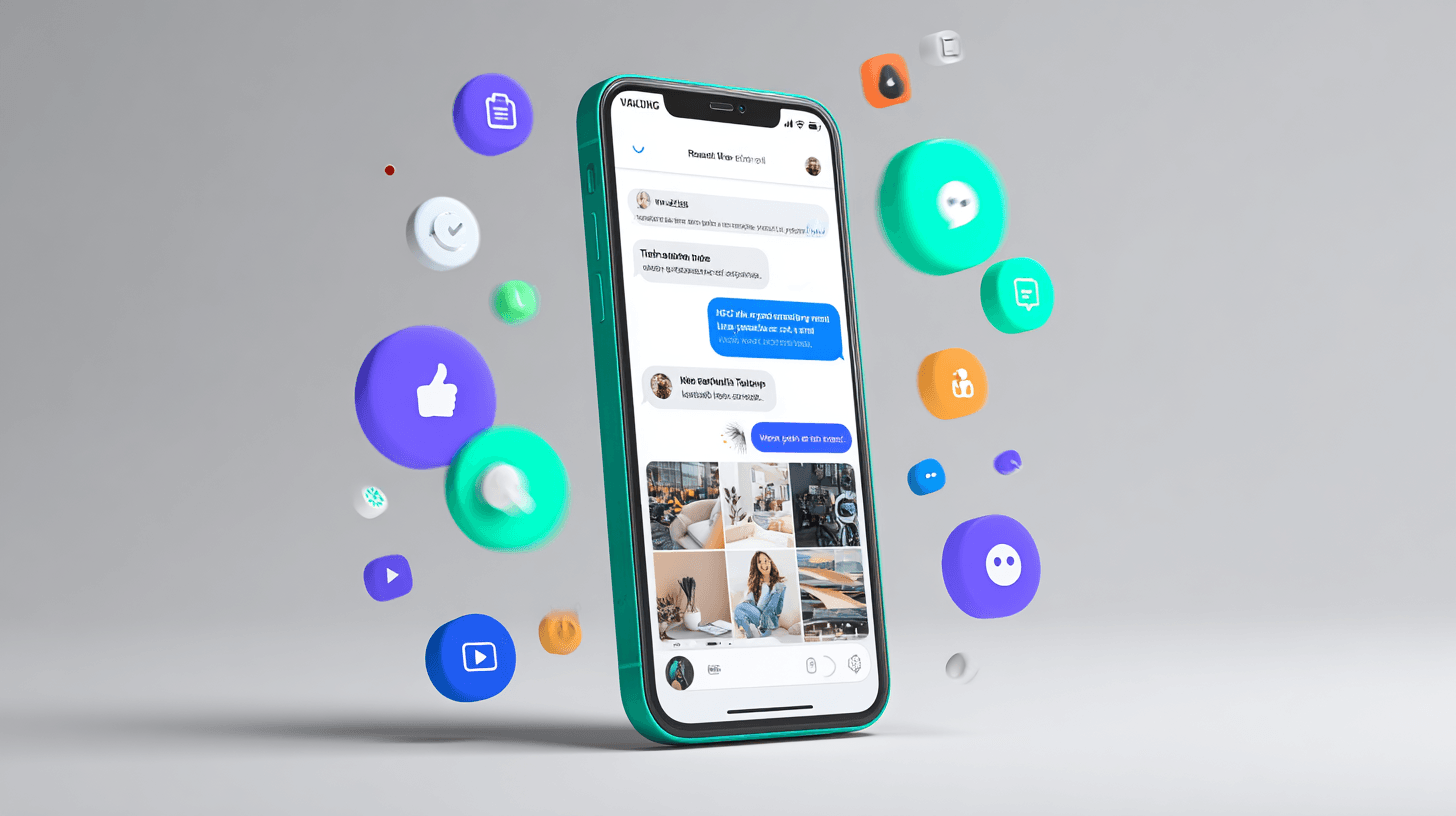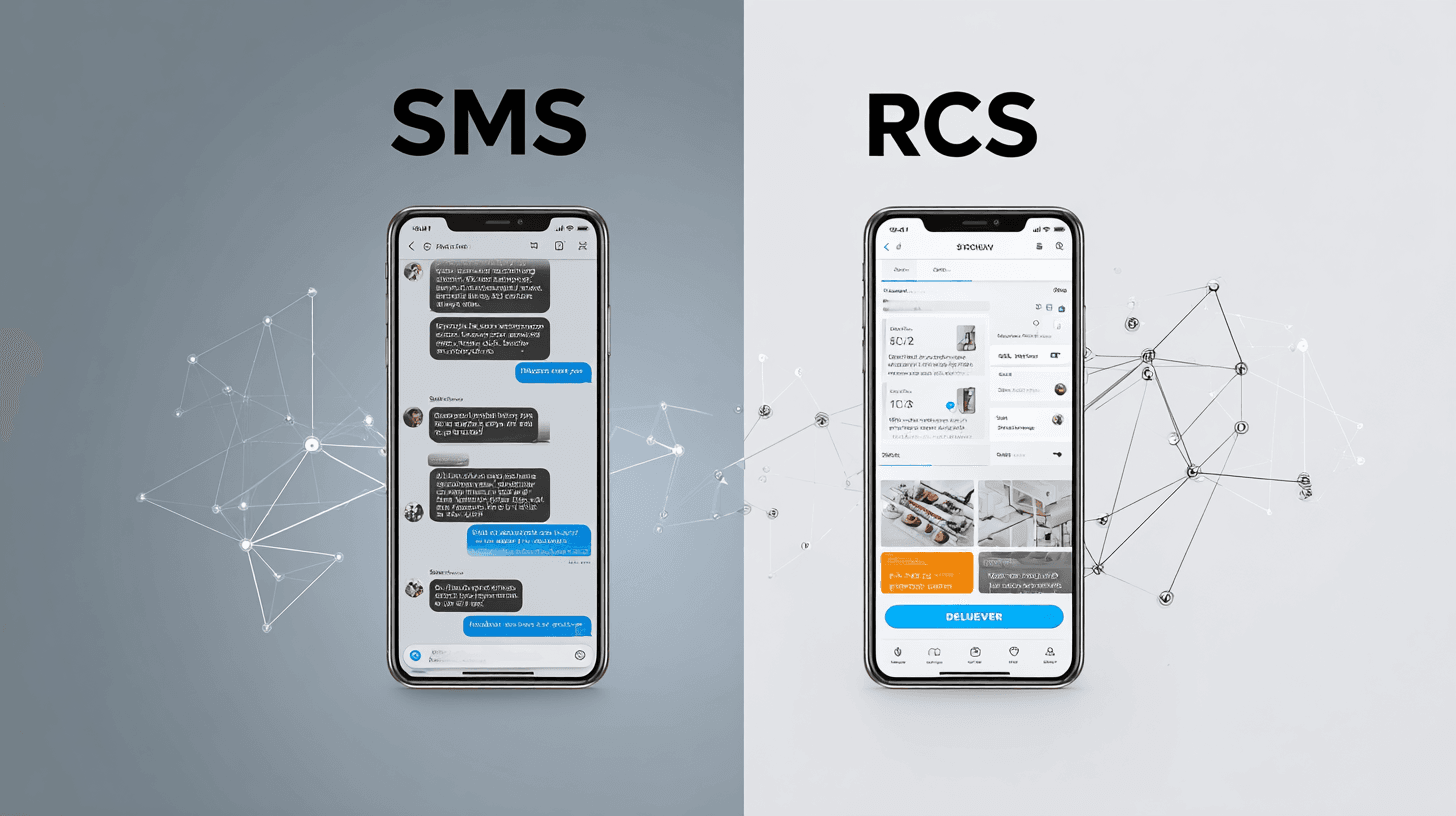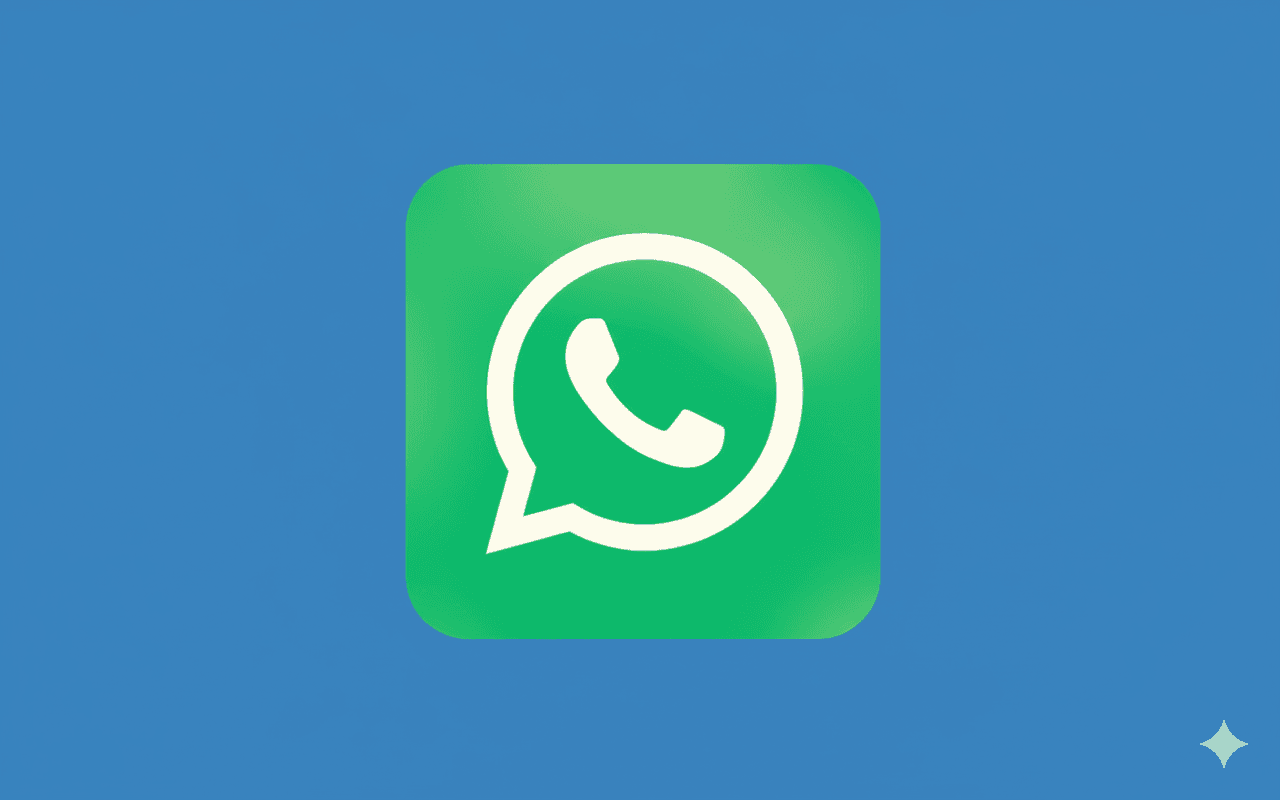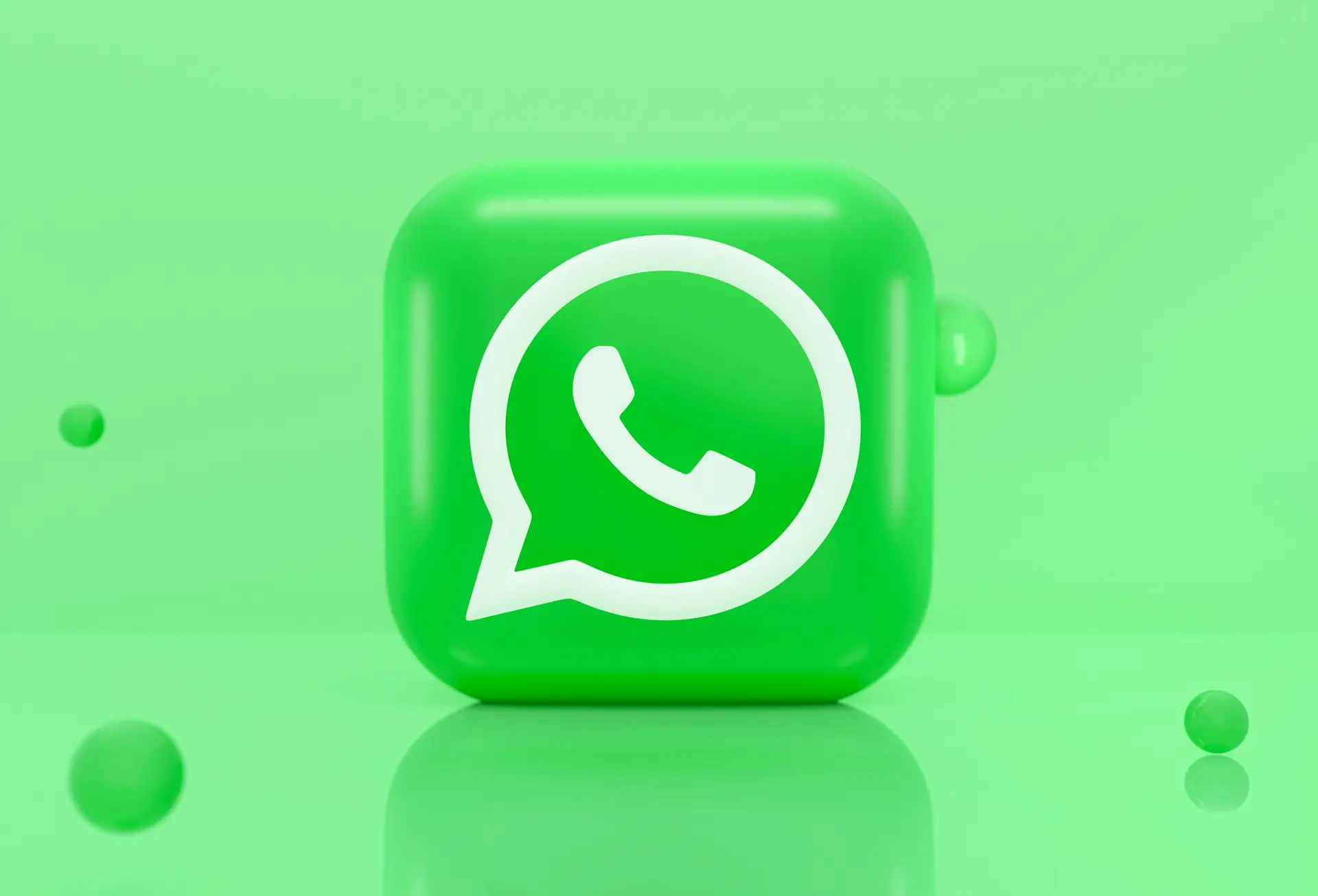With over 2.5 billion users worldwide, WhatsApp is the most popular messenger and a powerful tool for modern sales. In Germany, Austria and Switzerland, almost 90% of smartphone owners use WhatsApp, making it an ideal channel for customer communication. Through quick, personal interactions, prospects can be effectively converted and customer relationships maintained.
WhatsApp messages have an impressive open rate of over 90% and are usually answered within 90 seconds. Since 2018, WhatsApp can also be used by companies in a GDPR-compliant manner thanks to the Business API, paving the way for professional conversational sales. By integrating WhatsApp into the sales process, companies can increase their efficiency and improve the customer experience.
What is conversational sales?
Conversational sales is a modern sales approach based on interacting with customers through various channels such as messenger services, live chats and emails.It is a form of conversational marketingin which companies communicate with their customers in real time to understand their needs and meet their expectations. By using conversational sales, companies can strengthen their customer relationships, increase their sales and improve their customer retention. This method makes it possible to respond immediately to individual customer inquiries and offer customized solutions, resulting in an improved customer experience.##WhatsApp as a powerful sales toolThe WhatsApp Business APIenables companies to integrate the messenger into their processes in a versatile and GDPR-compliant way. Through automation, sales tasks can be mapped more efficiently than through classic channels. Some advantages of the WhatsApp Business API at a glance:
- Automation of frequent customer requests
- Integration with CRM systems and other tools
- Sending multimedia content such as images and videos
- Integration into marketing measures such as QR codes
Companies that successfully integrate WhatsApp into their sales operations benefit from faster response times and improved customer communication. By automating and managing conversations across multiple channels, sales processes can be optimized and communication with customers improved. According to a study by Meta, 75% of adults prefer communicating with businesses via messaging platforms than with friends and family. WhatsApp thus offers great opportunities for expanding conversational commerce.
Conversational marketing: The new way to sales success
The casual conversation atmosphere on WhatsApp makes it easier for sales representatives to build trust before a sale is made. This positive customer experience helps to foster long-term relationships and strengthen customer loyalty. To ensure all functions and GDPR compliance, companies need the WhatsApp Business API for their WhatsApp sales.
The use of AI and machine learning supports efficient lead qualification and thus increases the efficiency of the entire sales process. By integrating the online shop into the WhatsApp Business platform, the complete purchase process can be seamlessly handled directly in the chat, resulting in an optimized customer journey.
| Advantages of Conversational Sales | Traditional Sales |
|---|---|
| Personalized real-time interaction | Standardized communication |
| Shorter sales cycle | Longer sales processes |
| Increased customer loyalty | Decreased customer loyalty |
| Efficient lead qualification | Manual lead evaluation |
Use cases for using WhatsApp in sales
WhatsApp offers a variety of opportunities for sales teams to address their target customers on a personal and dialog-oriented level.
Automated lead qualification via the messenger
By integrating WhatsApp into CRM systems, lead qualification can be automated. Chatbots can pre-sort incoming requests and capture relevant information to forward qualified leads to sales. This makes sales processes more efficient and enables personalization.
Integration of WhatsApp with CRM systems with our software chatarmin.com
Our software chatarmin.com enables seamless CRM integration of WhatsApp. Customer data and communication history are synchronized to provide a holistic view of the customer. Automated messages and personalized addressing enable customer inquiries to be processed efficiently and customer loyalty to be strengthened.
Contracts via WhatsApp
Contracts via WhatsApp offer companies a quick and easy way to process transactions directly with customers. Thanks to the WhatsApp Business API, such processes can be implemented securely and in compliance with the law, making the sales process significantly more efficient. In addition, direct communication enables quick clarification of open questions and strengthens the trust between company and customer. This not only makes it easier to conclude contracts, but also makes it more customer-friendly. Interactive elements such as a well-placed call to action can appeal to visitors and draw them into the conversation.
Scheduling appointments for your customers via WhatsApp
Scheduling appointments via WhatsApp is particularly effective thanks to the high frequency of use and speed of interaction. Customers can conveniently request, confirm or reschedule appointments. By integrating with calendar tools or your website, appointment scheduling and thus customer interaction can be automated and optimized.
Best Practices: Tips and tricks for an optimal customer experience
To successfully integrate WhatsApp into your sales strategy, there are some best practices you should follow. First of all, it is important to obtain consent from your customers before contacting them via WhatsApp. This ensures that your customer communications remain GDPR compliant.
Another tip is to use message templates for a 24/7 service. With pre-written responses, you can quickly respond to common requests and be available to your customers 24/7. Also, use shortcuts and media attachments to make your chats more efficient and improve customer communication.
Make sure your messaging remains professional but still personal. A personal approach builds trust and strengthens the relationship with your customers. Consider the entire sales funnel and support it with automation where it makes sense.
| Best Practice | Description | Benefits |
|---|---|---|
| Obtain consent | Ask customers for permission to contact them via WhatsApp | GDPR compliance, respect for privacy |
| Use message templates | Create pre-written responses for common requests | Faster response times, 24/7 service |
Use shortcuts and media in chats for more efficient communication. Address customers personally. Communicate professionally, but still personally. Build trust and strengthen customer loyalty. Consider the sales funnel.Use WhatsApp marketingalong the entire sales funnel. Take a holistic approach and support the sales process.
To ensure a seamless customer experience, it is also essential to integrate WhatsApp into your CRM system and other tools. This is the only way to manage all customer data centrally and measure the success of your WhatsApp campaigns.
By following these best practices and strategically integrating WhatsApp into your sales processes, you can unlock the full potential of conversational sales and take your customer relationships to a new level.
Challenges and solutions for implementing WhatsApp in sales
The introduction of WhatsApp as a sales channel brings with it a number of challenges that need to be overcome. In particular, data protection and compliance with the GDPR play a central role. Companies must ensure that they meet legal requirements and protect the privacy of their customers.### Data protection and GDPR-compliant use of WhatsAppTo use WhatsApp in sales in a GDPR-compliant manner, it is essential to use the Business API and an experienced partner like chatarmin.com. By actively obtaining consent, handling customer data carefully and adhering to strict data protection standards, companies can meet the legal requirements.
Chatarmin.com helps companies to integrate WhatsApp into their sales processes in a data protection-compliant manner. The software offers comprehensive functions for managing consents, secure data processing and compliance with GDPR requirements.
Training and familiarization of the sales team
Another challenge in implementing WhatsApp in sales is preparing the sales team for the new form of communication. Sales representatives must learn how to communicate professionally via the messenger and how to make the most of the channel's advantages.
This challenge can be overcome with targeted sales training and structured employee onboarding. Companies should give their sales representatives the opportunity to familiarize themselves with the specifics of WhatsApp communication and learn best practices.
| Challenge | Solution |
|---|---|
| Data protection and GDPR | Use of the Business API and collaboration with chatarmin |
| Training of the sales team | Targeted sales training and structured employee onboarding |
By overcoming these challenges and using appropriate solutions, you can successfully integrate WhatsApp into your sales.
Conclusion
WhatsApp has established itself as a powerful sales tool and offers you tremendous opportunities. With its wide reach and diverse automation options, the messenger opens up new ways to reach customers and strengthen relationships.
| Advantages of WhatsApp in sales | Conversational Sales Success Stories |
|---|---|
| 90% open rate for WhatsApp newsletters | 24/7 automated customer support through chatbots |
| Personalized customer service and offers | Increased conversion rates through lower bounce rates |
| Optimized workflows and resource utilization | Adaptation of marketing strategies based on conversational commerce data |
Future outlook: how conversational sales will develop
The future of sales lies in conversation. Conversational commerce and the use of messaging apps like WhatsApp in sales are rapidly gaining in importance. Customers increasingly expect to be able to interact with companies directly in chat apps and even make purchases. To stay competitive, companies must recognize these trends early on and gradually digitize their sales and service processes.
Another key trend is omnichanneling, in which different communication channels are seamlessly linked. Customers should receive a consistent experience across all touchpoints – whether via WhatsApp, email, phone or web chat. Sales teams must learn to orchestrate these channels intelligently and take a holistic view of customer communications.
Artificial intelligence and chatbots will play an increasingly important role in conversational sales in the future. AI-supported systems can answer customer inquiries, provide individual recommendations and relieve sales staff of routine tasks around the clock. According to studies, conversational AI chatbots enable significant cost savings and an acceleration of the sales process. However, it is also important to keep an eye on challenges such as data protection and user acceptance.
Companies that pick up on these trends early on and integrate conversational sales into their sales strategy will stay ahead in the long term. After all, in a digital world, the quality of customer dialog determines business success. Our software makes it easy to enter the world of conversational commerce - for more revenue, efficiency and customer focus in tomorrow's sales.
FAQ
What is Conversational Sales and how can it support my sales team?
Conversational Sales is a sales approach based on personal dialog and building customer relationships via messaging channels such as WhatsApp. It enables fast, personalized interactions, improves the customer experience and can accelerate the sales process.
Why is WhatsApp so well suited as a sales tool?
WhatsApp has an enormous reach with over 2.5 billion users. Messages have a high open rate of over 90% and are usually answered within 90 seconds. What's more, WhatsApp can be integrated into business processes in a versatile and GDPR-compliant way via the Business API.
What specific use cases are there for using WhatsApp in sales?
WhatsApp can be used throughout the entire sales funnel, e.g. for automated lead qualification via chatbot, integration into the CRM system for personalized addressing, signing contracts or making appointments. Tools such as chatarmin.com make it easier to connect to the company's IT.
What best practices should be considered when using WhatsApp for sales?
The most important best practices include obtaining consent, using message templates, using shortcuts and media for efficient chats, and communicating in a professional yet personal manner. The entire sales funnel should be considered and supported by automation.
What challenges are there in implementing WhatsApp in sales?
When introducing WhatsApp, legal and organizational questions must be clarified. With the Business API and a partner like chatarmin.com, WhatsApp can be used in compliance with the GDPR. In addition, sales representatives act in the company account on WhatsApp, which requires training in professional communication.
How will conversational sales develop in the future?
Conversational sales and the use of messengers in sales will continue to gain in importance. Trends include the development towards conversational commerce, integration with other channels (omnichannel) and the increasing use of AI and chatbots for marketing, sales and service.








